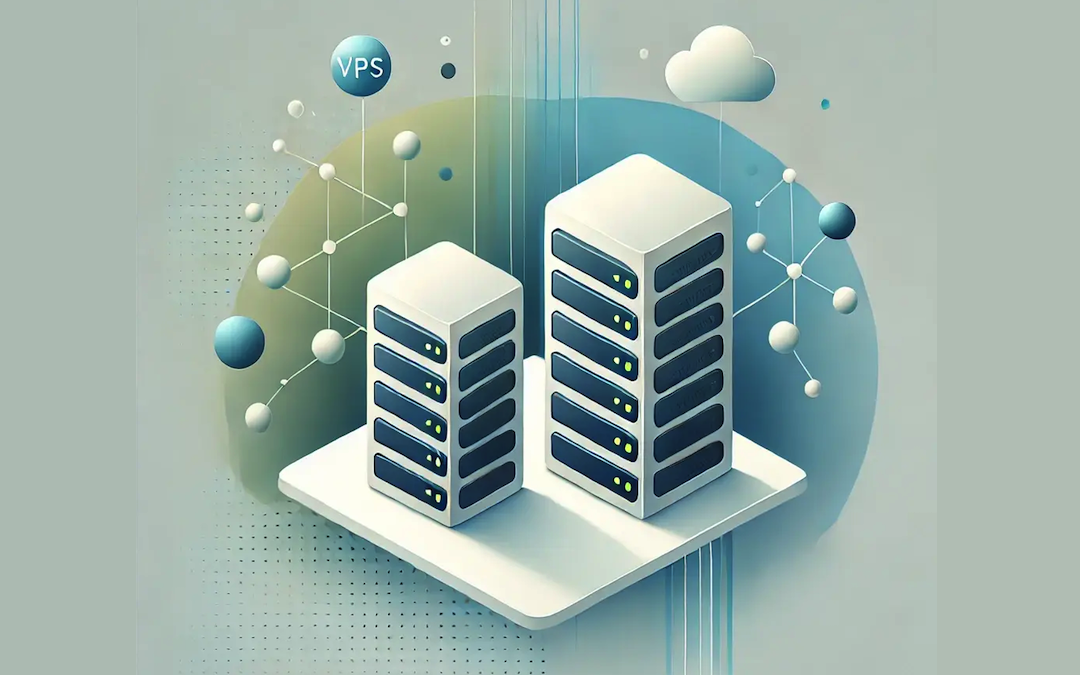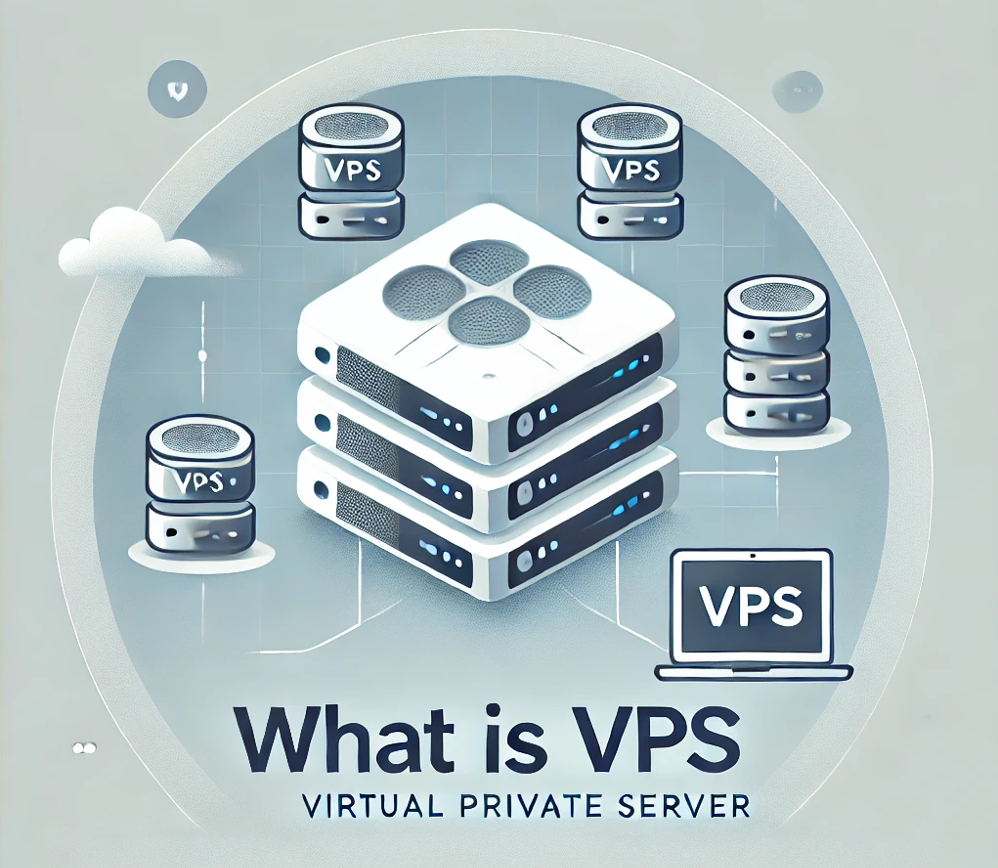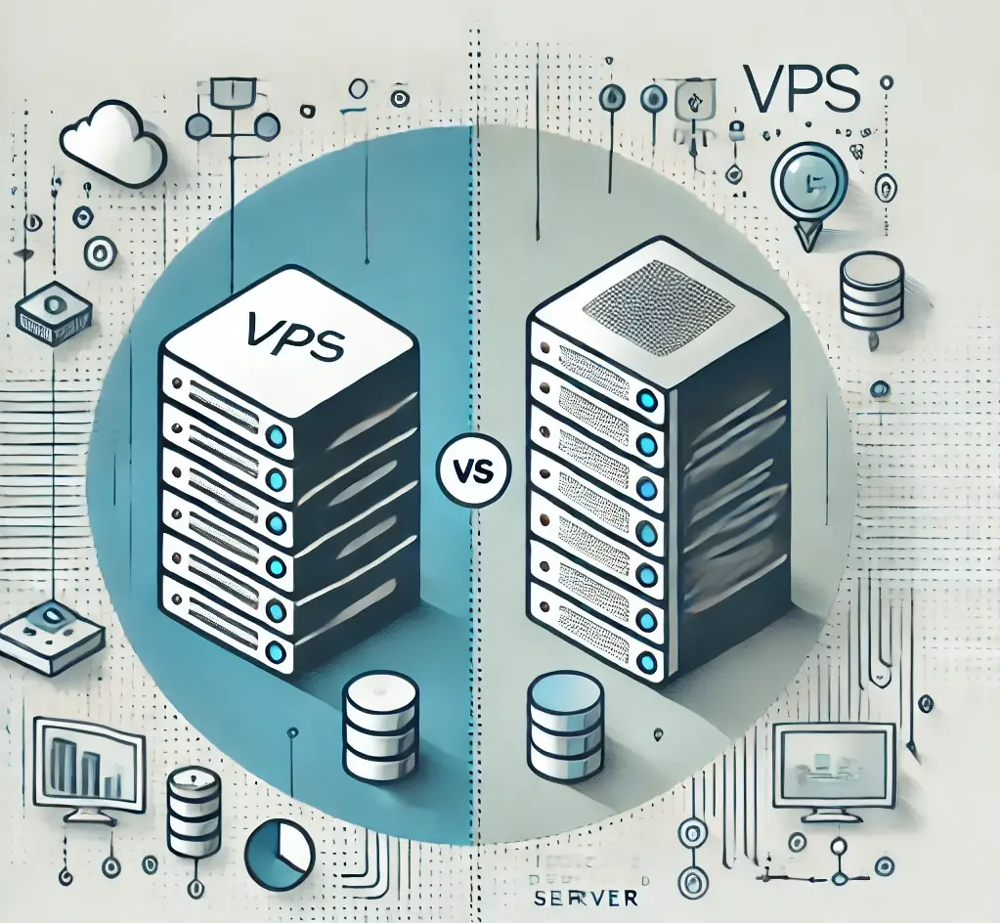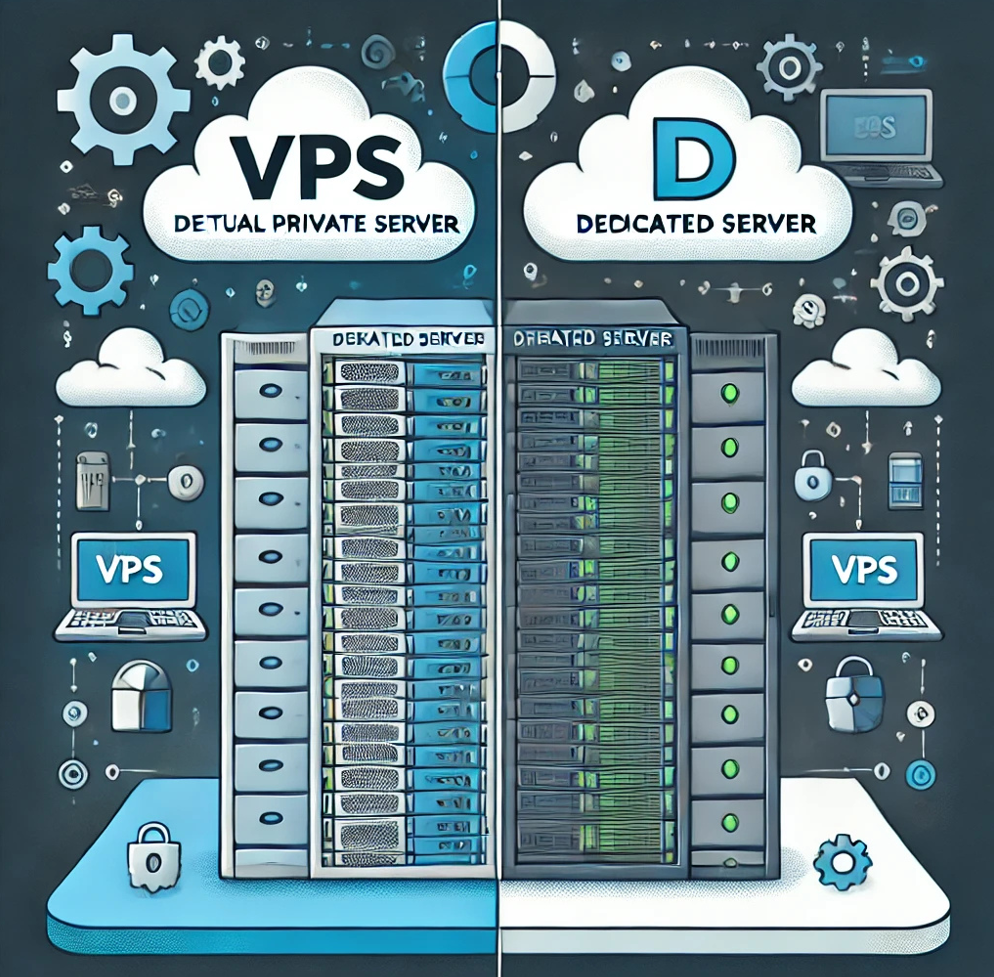
VPS is a part of powerful physical servers created using virtualization technology. Each virtual instance on a server has its own dedicated server resources, such as RAM, processor, and storage space, in a virtual and independent environment.
On the other hand, a dedicated server is a complete physical server exclusively available to a user or organization. This server's resources (processor, RAM, memory, and bandwidth) are used exclusively and without sharing.
The key difference between a VPS and a Dedicated Server lies in hardware exclusivity, which makes a dedicated server better in terms of performance, stability, and security. However, VPS's advantages include low cost and high scalability, making it ideal for Startups and small businesses.
What is VPS?
A VPS is created by partitioning a powerful dedicated server using a Hypervisor. Each VPS instance running on a single server has its own resources and acts as an independent server environment.
The resource independence feature allows users of each VPS to be responsible for their work, and heavy use of one VPS doesn't significantly affect the performance of other VPSs.
Reliable VPS providers offer significant services, including high-quality performance, security, and scalability for small and medium-sized businesses. Therefore, it’s an ideal choice to buy vps for organizations with low budgets.
Pros of VPS
- Mid-tier performance
- Cost-effective
- High Scalability and Flexibility
- Root Access
- High security
- Easy management
Cons of VPS
- Possible performance drop during peak times
- Dependence on the physical server
- Potential for downtime
- Limited for Large-Scale Applications

What is a Dedicated Server?
A dedicated server is an independent physical device with hardware resources allocated to a single user. This means that all the RAM, processor, and storage space are at the disposal of one user, and there is no competition between multiple users. This server is more expensive than a VPS, which is the cost of enjoying higher performance and security.
With a dedicated server, a user controls all parts of the device, including the operating system and required software, and can, if necessary, adapt the server's features and hardware power to their needs.
This type of hosting is ideal for large businesses and websites with high traffic volumes that require strong resources and High security.
Pros of Dedicated Server
- High Reliability and performance
- Dedicated Resources
- High Security
- Complete Control
- Reliable Stability
- Isolation
- Easy management
- Ideal for Large Businesses
Cons of Dedicated Server
- High Cost
- Complex Management
- Mid-level scalability
Dedicated Server vs VPS: A Complete Comparison
Here is the comparison between the VPS and dedicated server hosting.
| Feature | VPS | Dedicated Server |
|---|---|---|
| Resource Usage | Sharing resources of a physical server between multiple VPSs | Allocate all resources to one server |
| Performance | Good performance for small to medium applications | Maximum performance for any size site or application |
| Security | High security but dependent on server security | Maximum security due to complete hardware isolation |
| Scalability | Easily scales up and down with just a few clicks | Easy to scale up to a point until new hardware needs to be added |
| Customization | Root access with some limitations | Full control over server setup and OS |
| Use case | Small to moderate sites and businesses that need more than what shared hosting can offer | Large, resource-hungry applications with strict security and compliance requirements |
| Cost | More affordable | Higher cost |
VPS vs Dedicated Server: 5 Key Differences to Choose the Best
Understanding the differences between VPS and dedicated servers in five key aspects—performance, security, control, scalability, and cost—will empower you to make the best choice for your business or personal needs.
1. VPS Hosting vs Dedicated Server: Performance
VPS performance is much higher than that of a shared host. It can provide a secure and stable virtual environment, especially if you have a medium-sized business or a site with medium traffic.
However, a dedicated server takes performance to another level and can handle heavy traffic and tasks well.
In the comparison of a dedicated server vs VPS, a dedicated server offers higher performance because its resources are entirely dedicated to a single user. If these resources meet the needs of your project, they won't be affected by other users' heavy operations.
However, the VPS's resources are part of the parent server's resources, which can disrupt the performance of other VPS instances if these resources are disrupted or if the load on other VPS instances is extremely high.

2. VPS vs Dedicated Server: Scalability
When comparing VPS hosting vs dedicated server, the scalability of VPS is significantly higher. VPS resources can be upgraded with just a few clicks, allowing it to adapt quickly to changing needs.
On the other hand, the resources of a dedicated server are set to be fixed, and if you have to upgrade the server hardware resources due to existing conditions, you must directly add new hardware to it.
3. VPS vs Dedicated Server Hosting: Security
Sharing resources between multiple users is the main factor in server vulnerability. Although physical server resources are shared exclusively between VPSs, the performance of all virtual instances depends on the physical server. Any hacking attack or disruption also affects the performance and security level of VPSs.
On the other hand, a dedicated server provides the user with a completely dedicated environment, which means you are directly responsible for maintaining the server's security, and external factors do not affect it.
4. Dedicated Server vs VPS: Control and Customization
Although both servers have the advantage of root access, limiting a VPS to a physical server reduces the degree of control VPS users have.
The dedicated server user is the only server owner with full control and customization capabilities.
5. VPS server vs Dedicated Server: Cost
The cost of purchasing and maintaining a VPS is lower when comparing a VPS vs a Dedicated Server. This is because a VPS is a virtual version of a physical server, while a dedicated server is an independent server with higher initial and maintenance costs.
In general, if you choose a dedicated server because of the security, performance, and higher control of the server, you must also pay for it.

Which one should you choose, VPS or Dedicated Server?
To make the right choice, it is better to pay attention to the following 3 points:
1. Business Size
If you have a small to medium business or have just launched a low-traffic website traffic, it is better to choose VPS. This way, you create a balance between cost and performance. Of course, the scalability of a VPS allows you to upgrade your server hardware whenever needed.
On the other hand, if you have a large business or website with high traffic, purchasing a dedicated server is better to ensure its performance and stability.
2. Budget
Purchasing and setting up a VPS is less expensive than a dedicated server. So, if your startup doesn’t need all the benefits of a dedicated server, you can get a VPS now for a lower cost and take advantage of the support management efforts.
But if you need a higher level of technical expertise for maintenance, troubleshooting, upgrades, and high security and performance and are willing to pay for it, choose a dedicated server.
3. Level of Expertise
If you lack the technical knowledge to manage the server and would like to do this with the Hosting provider's help, it is better to choose a VPS.
On the other hand, a dedicated server is the right option if you need a higher level of server management in your large and sensitive projects and want to take responsibility for all the settings yourself.
However, you should know that managing a dedicated server is risky and also expensive. So, if you want to have all aspects under your control, it is better to be prepared for higher costs and unforeseen possibilities.

VPS Hosting vs Dedicated Server: Choosing the best option for you
VPSs and dedicated servers suit specific areas based on their advantages and limitations.
VPS Use cases
- Small to medium-sized businesses
- Cloud service providers
- Web service providers
- Digital marketing businesses
- Startups and new projects
- Hosting websites with medium traffic
- Software development and test
- Setting up online game servers with limited players
- Setting up VPN and Proxy services
- Hosting databases such as MySQL or PostgreSQL
- Executing automated scripts
Dedicated Server Use cases
- Large and growing businesses
- Large websites and applications with high and unpredictable traffic
- Complex enterprise software such as CRM and ERP
- Hosting large and sensitive databases
- Big Data processing
- Games with high numbers of players
- Sensitive applications such as online gaming and video streaming
- Financial trading platforms
- Setting up organizational email systems
- Backing up sensitive and large data
- Launching virtualization services
- Launching private clouds or virtual clusters
Now, it's up to you to make a choice that suits your business or project based on your needs, budget, and level of expertise and take a step toward success.
Conclusion
VPS vs dedicated server hosting each has the potential to meet users' needs. But you need to assess your business needs and make a suitable choice, considering your budget. Overall, if your business is small to medium and has low traffic, it is better to use a VPS. Choose a dedicated server if your large business deals with sensitive data and needs specialized server management.
Share this post
Leave a comment
All comments are moderated. Spammy and bot submitted comments are deleted. Please submit the comments that are helpful to others, and we'll approve your comments. A comment that includes outbound link will only be approved if the content is relevant to the topic, and has some value to our readers.

Comments (0)
No comment